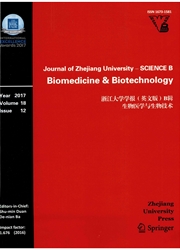

 中文摘要:
中文摘要:
Over the course of the past 35 years,assisted reproductive technologies(ARTs)have been increasingly used worldwide,while debates on their safety have been generated.Birth defects and imprinting disorders were reported in previous research.Thus,the psychological development of children born following ARTs has become a major concern nowadays.This review gives a systematic view of psychological well-being of children conceived by different types of ART,including in vitro fertilization,intracytoplasmic sperm injection(ICSI),preimplantation genetic diagnosis/screening,and in vitro maturation.The previous studies are analyzed in three sections:(1)cognitive,motor,and language developments,(2)behavior problems and socio-emotional development,and(3)parent-child relationship.We conclude that although the majority of the studies on cognitive,motor,and language developments reported comparable achievements in the ART group vs.the naturally conceived group,lower intelligence quotient(IQ)scores,worse visual-motor ability or locomotor development,and delayed receptive language competence were found in the ART group.The results on the socio-emotional development were reassuring.As for the behavior problems,a higher prevalence of behavior problems existed in ART children;moreover,ICSI children were found to be at a higher risk of autism than the general population.Meanwhile,ART parents tended to have positive parental attitudes and be more protective of their children.Some suggestions for further research are also given in this review.
 英文摘要:
英文摘要:
Over the course of the past 35 years, assisted reproductive technologies (ARTs) have been increasingly used worldwide, while debates on their safety have been generated. Birth defects and imprinting disorders were re- ported in previous research. Thus, the psychological development of children born following ARTs has become a major concern nowadays. This review gives a systematic view of psychological well-being of children conceived by different types of ART, including in vitro fertilization, intracytoplasmic sperm injection (ICSI), preimplantation genetic diagnosis/screening, and in vitro maturation. The previous studies are analyzed in three sections: (1) cognitive, motor, and language developments, (2) behavior problems and socio-emotional development, and (3) parent-child rela- tionship. We conclude that although the majority of the studies on cognitive, motor, and language developments re- ported comparable achievements in the ART group vs. the naturally conceived group, lower intelligence quotient (IQ) scores, worse visual-motor ability or locomotor development, and delayed receptive language competence were found in the ART group. The results on the socio-emotional development were reassuring. As for the behavior problems, a higher prevalence of behavior problems existed in ART children; moreover, ICSI children were found to be at a higher risk of autism than the general population. Meanwhile, ART parents tended to have positive parental attitudes and be more protective of their children. Some suggestions for further research are also given in this review.
 同期刊论文项目
同期刊论文项目
 同项目期刊论文
同项目期刊论文
 Altered expressions and DNA methylation of imprinted genes in chromosome 7 in brain of mouse offspri
Altered expressions and DNA methylation of imprinted genes in chromosome 7 in brain of mouse offspri Different sperm sources and parameters can influence intracytoplasmic sperm injection outcomes befor
Different sperm sources and parameters can influence intracytoplasmic sperm injection outcomes befor Altered expression of Armet and Mrlp51 in the oocyte, preimplantation embryo, and brain of mice foll
Altered expression of Armet and Mrlp51 in the oocyte, preimplantation embryo, and brain of mice foll Genome-wide DNA methylation patterns in IVF-conceived mice and their progeny: A putative model for A
Genome-wide DNA methylation patterns in IVF-conceived mice and their progeny: A putative model for A Evaluation of DNA methylation status at differentially methylated regions in IVF-conceived newborn t
Evaluation of DNA methylation status at differentially methylated regions in IVF-conceived newborn t In Vitro Fertilization Alters Growth and Expression of Igf2/H19 and Their Epigenetic Mechanisms in t
In Vitro Fertilization Alters Growth and Expression of Igf2/H19 and Their Epigenetic Mechanisms in t Alterations in the frequency of trinucleotide repeat dynamic mutations in offspring conceived throug
Alterations in the frequency of trinucleotide repeat dynamic mutations in offspring conceived throug 期刊信息
期刊信息
